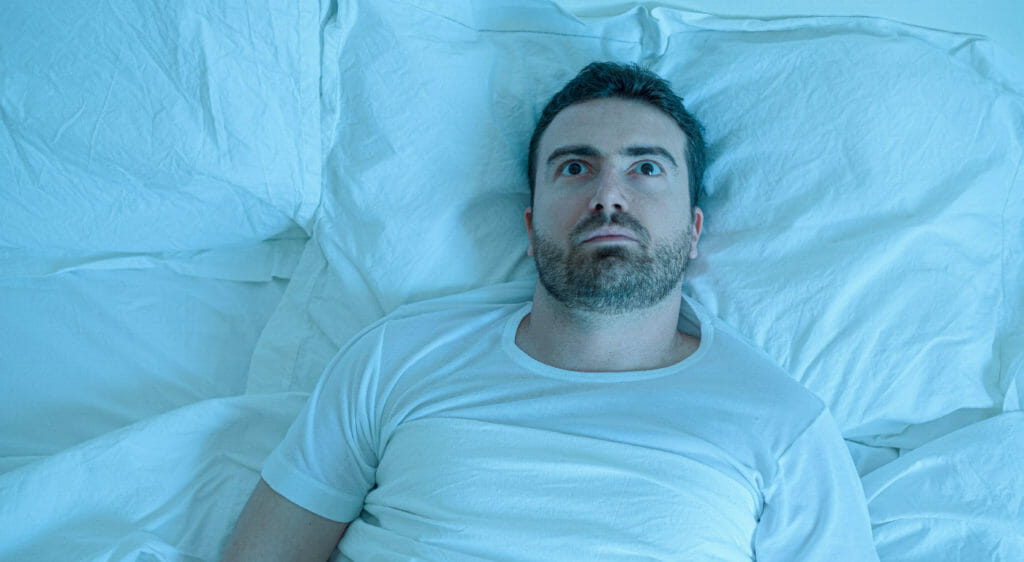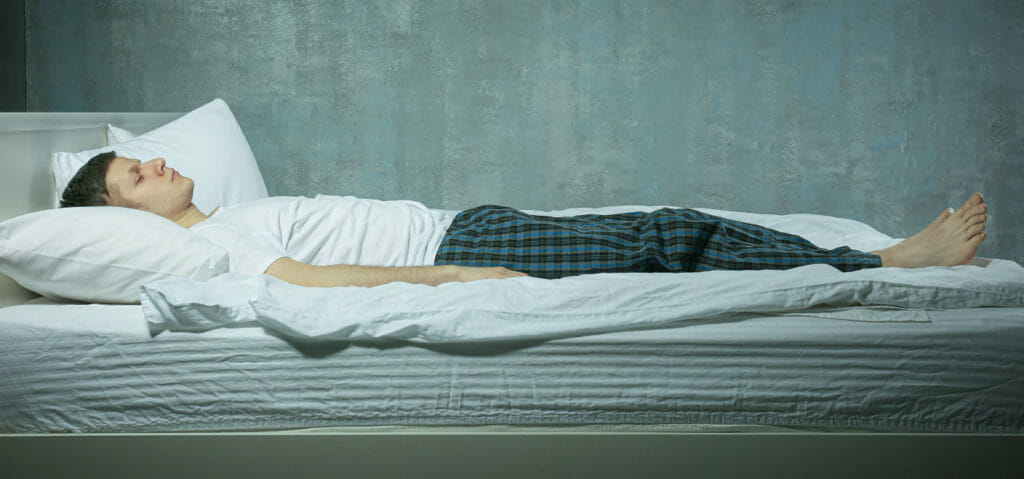While sleep is important for the overall health of the human body and for most, it’s also quite enjoyable, especially after a long day at the office. However, for some people, going to bed can be terrifying.
We’re not talking about nightmares, either. Some people who find themselves completely paralyzed for a few moments. Sometimes it happens as they wake up and other times it happens while they are falling asleep.
Fortunately, sleep paralysis is generally not viewed as a dangerous condition, but it can be an exceptionally unpleasant experience that can cause a person to experience anxiety and fear.
In this article, we take a closer look at what sleep paralysis is as well as some of the most common reasons why people experience the condition.
What Is Sleep Paralysis?

Sleep paralysis is a condition where a sleeping person is fully conscious while experiencing short periods of time where they are unable to move. Typically, this occurs during the time when a person is falling asleep. In some cases, the sleep paralysis can kick in as a person is waking up.
Sufferers describe themselves lying awake in bed, fully aware of their surroundings but unable to move their body or perhaps even their eyes.
In the majority of cases where a person experiences an episode of sleep paralysis, the symptoms may only persist for a few seconds. There are, however, some people who say they have experienced this for a couple of minutes at a time. The longer the symptoms persist, the more terrifying the experience tends to be.
Some people experience sleep paralysis without the presence of other medical conditions. However, many cases have been reported in which a person experiences sleep paralysis along with other types of sleep disorders, such as narcolepsy.
What Are the Symptoms of Sleep Paralysis?

Sleep paralysis is primarily associated laying in bed awake but unable to control your body’s movements. Even though you are fully aware of your surroundings, you are unable to move any part of your body during an episode. This can happen as you fall asleep or as you wake up.
Many people also report other symptoms accompanying the paralysis, including:
- Extreme fear.
- Some people have reported feeling as though they are being watched by someone intending to do them harm—a kind of hallucination.
- Many say they find that breathing is difficult during an episode. A lot of people have reported that they felt like their chest was restricted during their paralysis.
- Some people report they are able to open their eyes or move their eyes around. Others report that they cannot. There are cases when a person experiences an episode, and they are unable to open their eyes at all.
After a few minutes, the physical effects of sleep paralysis typically subside, however, many report experiencing anxiety and feeling nervous about going back to sleep.
Who Is Affected by Sleep Paralysis?
Sleep paralysis is more common than a lot of people might realize. If you’ve experienced one of these episodes, you are definitely not alone. A team of researchers at the Pennsylvania State University did extensive research on existing studies about sleep paralysis.
These studies examined a total of 36,533 test subjects and found that when the general population is taken into account, about 7.6% of all people will experience sleep paralysis at least once in their lifetime. Additional findings were also reported:
- Among students, the prevalence of sleep paralysis was as high as 28.3%.
- Among psychiatric patients, a total of 31.9% reported a minimum of one episode where they experienced symptoms of sleep paralysis in the past.
- The prevalence of sleep paralysis was highest among psychiatric patients who had been diagnosed with panic disorder—at 34.6%.
What Causes Sleep Paralysis?

An episode of sleep paralysis generally occurs when your brain is still in a phase known as REM (rapid eye movement) sleep, but there is no specific cause that has been linked to sleep paralysis. Researchers have found that certain risk factors seem to play a role in the likeliness of a person experiencing an episode.
Some of the possible risk factors include:
- Insufficient sleep seems to play a big part in increasing the risk of sleep paralysis. Insomnia is one common cause of sleep deficiency that may contribute to these episodes.
- People who have shift jobs may be more likely to experience these symptoms. The frequent shifting in periods when at work and the time that the person is able to sleep causes a disruption in their circadian rhythm, which could ultimately impact REM sleep, as well as their general sleeping patterns.
- If you have a family history of this condition, then your risk of sleep paralysis may also be higher.
- Some people have found that they are more likely to experience sleep paralysis if they sleep on their back.
- People who suffer from narcolepsy, a diagnosable sleeping disorder, are also much more likely to experience these symptoms than those who don’t have the disorder.
- People with irregular sleeping patterns may have an increased risk of episodes.
Conclusion
In this post, we looked at what sleep paralysis is and considered the potential causes behind the condition. Sleep paralysis is generally not considered a dangerous condition, but for the people who have experienced it, it can bring about feelings of fear and anxiety. While some people experience these symptoms only on rare occasions, others may experience sleep paralysis more frequently.